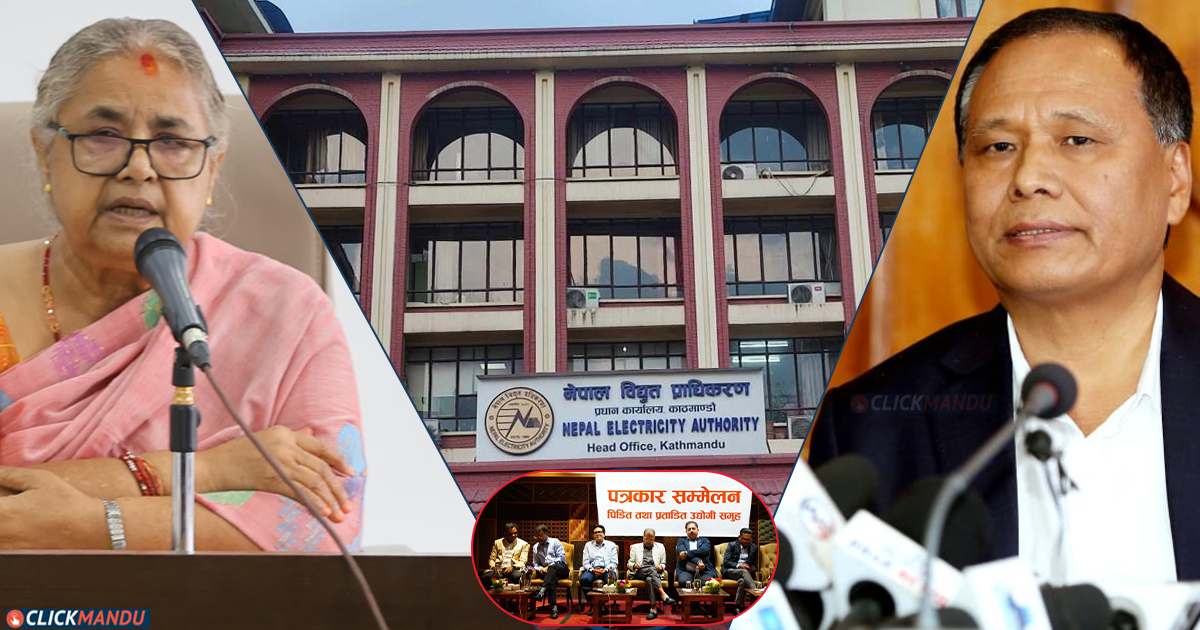Kathmandu: Twenty-six industrialists embroiled in the trunk and dedicated power line fee dispute have written to Prime Minister Sushila Karki, demanding that the Nepal Electricity Authority (NEA) provide concrete proof of electricity supply before payment collection.
In their joint letter, the industrialists have said they are ready to pay “whether it’s Rs 4 billion or Rs 40 billion” — but only if NEA can verify the actual power consumption through official records. They emphasized that they are not seeking fee exemptions but only asking for transparent verification.
The business representatives have requested access to Time of Day (TOD) meter data, which records industrial power use at different times. However, they claim the NEA billed them without presenting this data, prompting them to formally appeal to the Prime Minister.
“If the dues can be proven according to TOD meter data, we are fully committed to paying the outstanding amount,” the letter reads. “We have repeatedly expressed our willingness to clear the dues once they are verified.”
The industrialists further allege that NEA officials altered previous decisions of the Electricity Tariff Fixation Commission to create false arrears and collect unwarranted payments under the guise of trunk and dedicated line fees. “We are not seeking tariff waivers,” they wrote, “only proof that we owe the charges claimed.”
The dispute resurfaced after Energy Minister Kulman Ghising, who previously led NEA as executive director, directed the authority to recover outstanding dues. The NEA has already issued a public notice warning industries to clear payments by September 20 or face disconnection.
The charges concern electricity consumed through dedicated and trunk feeders between Magh 2072 and Baisakh 2075. While industries say they paid all regular tariffs, NEA claims additional premium charges are still due.
Under the latest decision of the NEA board on September 26, the deadline for payment was fixed, allowing willing consumers to pay in up to 28 monthly installments.
This is not the first clash between Ghising and industrialists. During his previous tenure at NEA, he had ordered power cuts to defaulting factories, defying instructions from then-prime ministers Pushpa Kamal Dahal and KP Sharma Oli to restore connections. His defiance later led to his dismissal from NEA.
Now, as Energy, Water Resources and Irrigation Minister, Ghising has revived efforts to recover nearly Rs 25 billion in pending fees — a move that has once again reignited tensions between the government and Nepal’s industrial sector.



Comment Here